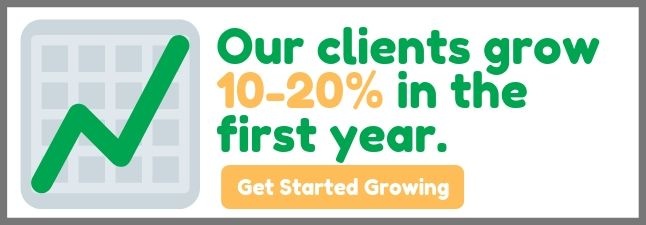Posted by Todd Hockenberry ● Sep 02, 2014
Market Driven, Sales Driven, or Driven Insane?
"Nothing happens until something gets sold." This is an old cliché quote I have heard many times, mostly from salespeople complaining about not getting their just due from senior management. Do you believe this? I used to believe it when I was a salesperson. I thought sales made the world go round. Nothing happens without us right?

Wrong. EVERYTHING happens before something gets sold.
That everything is your market. Your market existed before you and I promise you that if you went away they would still exist. Their needs, desires, wants, and community exist outside of you for the most part because you still look at them as a sale to be made. What they want is to be engaged, understood, and then they will buy from you.
Making sales gets harder every day. Creating demand through focused value delivery, constructive engagement, and actually understanding their business and how you can help them deliver results that they need will help convince them to buy from you.
Some salespeople will say that nothing happens internally until they sell something (budding narcissist) and for sales-driven companies this may be true. It is also a recipe for mediocrity and lagging results. If a sale has to happen first then where is the empathy for the customer when the product is designed, the feature set chosen, software configured, costing optimized, pricing set, etc… If you are waiting for a sale to happen before you engage, understand, and earn the trust of your market then you are in big trouble.
The changing nature of the buying cycle means that buyers do not even want to talk to your salesperson until they are 40-60+% into the buying process. The buyers are in control. They have the information and can research everything themselves instead of talking to your salesperson. So if you want to drive sales you better learn how to market to buyers online in the early stages of the buying cycle.
If you wonder if you are market-driven or sales-driven ask yourself this simple question:
Have you EVER walked away from an order or project that was outside your area of focus?
If you have then you at least have an area of focus and exercised judgment as to the best use of your resources. I am not talking about the off-the-wall project or ultra-custom job. I mean something you have never done before but ‘close enough’ to what you are really good at. Or in an industry you have never considered but said, “Sure we can do that”. I am talking about the ones that your sales guys sell in spite of being told not to and you STILL take the job.
You know the salesmen I am talking about – this is the one that says, “I would rather ask for forgiveness than for permission”. Forgive me, but you have my permission to leave. These guys are selfish and not good business people.
Market focus and segmenting is a pretty basic marketing strategy. Yet very few companies have the discipline to make the commitment to a target and drive deep to deliver maximum value. They would rather keep their options open or be flexible or serve a broad spectrum of clients. Maybe this works for the largest companies in your industry but for most it is a formula for stagnation. Oh, by the way, I’ll bet the best companies in your industry started by servicing one or two markets extremely well and then used that success as a springboard to dominate other market segments.
How about developing strategic relationships with companies in your market space but that do not necessarily service your target markets and give them the projects that come across your plate but are outside of your area of focus? Trade these ‘leads’ for contacts or referrals in the areas where you are great. You could also develop lead sharing or referral agreements with companies that are complementary to your focus.
Or even better, learn how to implement inbound marketing so that you are found by prospects when and how they want to find you.
Focus on being market-driven not sales driven and you will avoid being driven insane and out of business.
Topics: Sales





